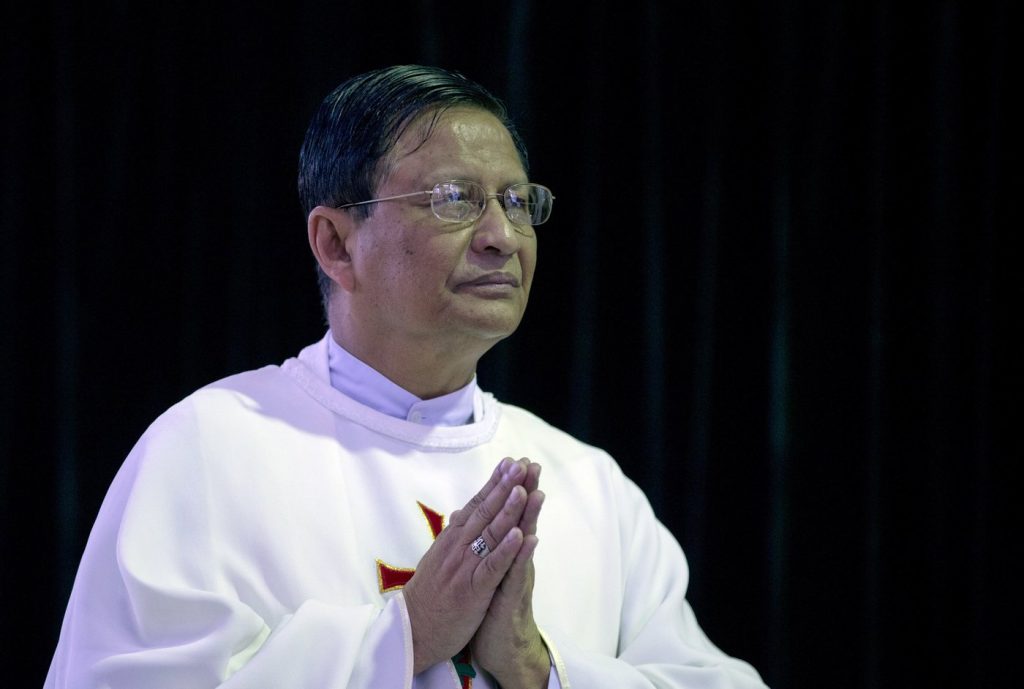BANGKOK (AP) - The main organization leading the resistance against Myanmar's military government announced the arrest of 10 members of a local resistance group suspected of killing Father Donald Martin Ye Naing Win, a 44-year-old Catholic priest. This incident marks the first known targeting of a Catholic priest in the ongoing civil conflict in Myanmar, which ignited following the army's seizure of power from the elected government headed by Aung San Suu Kyi four years ago. Father Ye Naing Win served in a church located in Shwebo township, situated in the Sagaing region, recognized as a stronghold for armed resistance against the military regime.
The Home Affairs and Immigration Ministry of the shadow National Unity Government (NUG), the primary opposition organization, issued a statement on Monday detailing that the suspects were apprehended by the Shwebo branch of its armed People's Defense Force (PDF) along with other local resistance groups. These arrests took place on Friday, the same day the priest was killed. The statement indicated that an initial investigation suggested involvement by members of a local defense force, and it confirmed that the Defense Ministry of the shadow government would carry out further investigations. However, the statement did not provide any insights into the potential motives behind the attack.
The NUG's statement expressed strong condemnation of any acts targeting civilians, including religious leaders. In the broader struggle for democracy against military rule, fighters from the Buddhist Burman ethnic majority have allied with historically oppressed ethnic minorities, some of which have large Christian populations. While Buddhists constitute nearly 90% of Myanmar's population, Christians account for approximately 6%.
Human rights organizations have claimed that Myanmar's security forces have indiscriminately and disproportionately targeted civilians, including attacks on churches and other houses of worship, such as Buddhist temples, subjected to aerial bombings. There have been instances where Christian clergy have faced violence, though the reasons remain often ambiguous. For example, in March of the previous year, Baptist pastor Nammye Hkun Jaw Li was killed, and a month later, Paul Hkwi Shane Aung, a parish priest in Kachin's Mohnyin township, was seriously injured in a shooting by gunmen.
Notably, there have been no prior documented instances of resistance groups specifically attacking Christian clergy. Cardinal Charles Bo, the head of the Catholic Bishops’ Conference of Myanmar, acknowledged Father Ye Naing Win's killing in a statement released Sunday. He expressed a hope that the blood and sacrifices of the innumerable innocent individuals, along with that of Father Ye Naing Win, would contribute to ending the prevailing violence across the nation. Cardinal Bo emphasized the importance of ensuring that justice is served, but his statement did not clarify the reasons for the priest's assassination.
Reports from independent media outlets in Myanmar, including Myanmar Now and the Democratic Voice of Burma, indicated that Father Ye Naing Win was stabbed by armed assailants within the premises of Our Lady of Lourdes Church in Kan Gyi Taw village, approximately 65 kilometers (40 miles) north of Mandalay. These reports also suggested that the priest had been accused of acting as an informer for the military.
Resistance fighters have engaged in a range of aggressive tactics against the military government, including targeted killings, sabotage, arson, and small bombings. The individuals typically targeted for assassination are those believed to collaborate with the military, often local officials who frequently resign due to threats. Although the NUG has stipulated that its forces adhere to a code of conduct that prohibits the killing of unarmed civilians, the People’s Defense Forces remain loosely organized, with many local resistance factions not feeling bound by this discipline.











